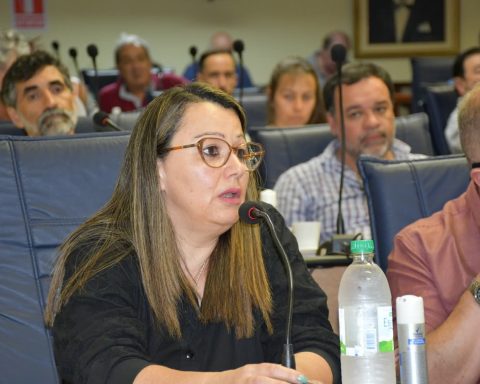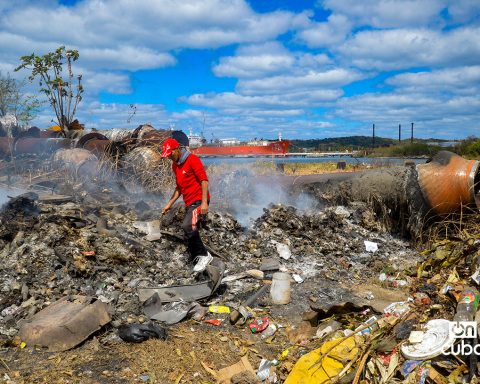This Friday the Mayor of Montevideo, Caroline Cossecalled a conference to announce New measures according to the water crisis that crosses the capital and the metropolitan area.
Accompanied by the director of Health, the doctor Virginia Cardozo, the mayor said that she had in her hands a Report commissioned to the Faculty of Medicine Over the effects of the presence of trihalomethanes in water.
The increase in these elements in OSE water was detected in recent weeks by the Energy and Water Services Regulatory Unit (Ursea), which explained that the Trihalomethanes consist of “by-products of chlorination of treated water for human consumption.”
Once this information became known, the Ministry of Public Health (MSP) called a press conference to explain that trihalomethanes did not represent any harm to healthat least before an exposure that was not prolonged for several years.
However, the Cosse administration commissioned its own report to the Faculty of Medicine on June 5, the response to which was revealed this Friday and bears the dean’s signature, Arturo Briva.
The report consists of five pages in which they are answered five questions formulated by the Municipality of Montevideo. At the press conference, however, Cosse, with a broken voice, chose to read a single paragraph of the report related to the risks of trihalomethanes for pregnant women.
The commune’s question regarding trihalomethanes was the following: “Is there a specific risk for pregnant people?
“Regarding consumption in early stages of pregnancy, the Evidence suggests a relationship with two sectors of malformations, face and cardiovascular system. On the face, high doses of trihalomethanes are associated with defects in palatal closure and visual impairments. Also described possible heart malformations with a dose-dependent relationship with trihalomethanes, both with ingestion and with skin exposure, that is, baths,” the chief read.
However, there are other parts of the response that the mayor chose not to read in her lecture.
The faculty report clarifies at the beginning that “in general terms there is little evidence about acute effects from the ingestion of water with high levels and in the reported cases they refer to obstructive respiratory symptoms”.
“In any case, it is necessary to emphasize that we must emphasize that the absence of evidence occurs in part because of the exceptional nature of the situation and should not be confused with the fact that there are no potential risks or that we have not been able to identify them,” he continues.
Already about pregnant women In particular, the letter warns: “The presence of trihalomethanes in water has been associated with complications in pregnancy and in the fetus. The Evidence on the risks in pregnancy of environmental conditions is always complex due to its multifactorial nature. of the perinatal results. The multifactorial and complex nature of its analysis leads to conflicting publications, which should be interpreted with caution“.
In another excerpt, the report from the Faculty of Medicine notes that “no risk of prematurity has been demonstrated” in the exposure of pregnant women to trihalomethanes.
He also maintains: “Another point discussed is the association with the low birth weight. There are studies that have shown its association in direct relation to dose while exposure is given versus intake, with an important cofactor such as different ethnic groups. This association was not demonstrated in the case of inhalation or dermal exposure.“.
And ends: “According to the conclusion of the meta-analysis published in Evid. Pediatr. 2010;6:52, there is no evidence that there is an association between the levels of products derived from drinking water purification ingested by the mother and effects on weight and height development fetal or prematurityexcept for infants small for gestational age in which some relationship could occur”.
Report of the Faculty of Medicine on trihalomethanes in water by The Observer on Scribd

















